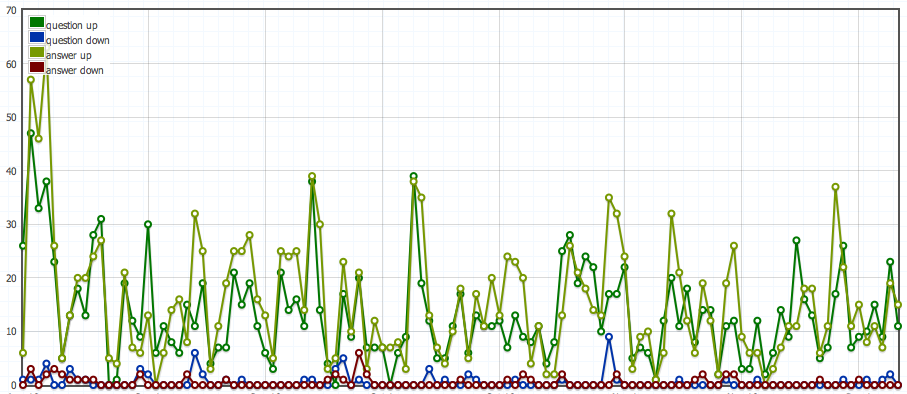Down-voting a question or an answer is very easy (at least for those who have more than a minimal reputation on a site); just click on an arrow! But giving a reason for the down vote requires a lot more effort. In response to another question on meta, yoda said
If an answer is incorrect or misleading, downvote it and explain in strong terms, your reasoning for the downvote and why it is inaccurate.
But hardly anyone on dsp.SE bothers to give any reason for a down vote (on questions or on answers), let alone explain why the answer is incorrect or misleading. Furthermore, I participate on some other SE sites as well, and my perception is that there are not only far more down votes on dsp.SE than on the other .SE sites that I visit, but the down votes are almost universally unexplained, sort of like drive-by shootings. This is not to say that other sites don't have down votes, but they are almost always explained. The difference between down votes on dsp.SE and (say) math.SE is even larger when compared on the basis of the traffic level on these two stackexchanges.
Are signal processors just nastier than mathematicians or cryptographers or statisticians? or is it that the ease of down voting, which can be done in anonymity unless one is down-voting an answer by a moderator or person of high reputation, makes people trigger-happy? There were, for example, at least two down votes in the past eight hours or so. Or is it just that dsp.SE is just out of beta (or at the end stages of beta?) and people haven't learned the protocols as yet? Would it be possible to not allow down votes without explanation or increase the penalty for down-voting without explanation to deter drive-by shootings, or better yet, automatically insert a comment like "-1 Down voted without explanation by xyz" when someone simply down votes, so that the victim at least knows who is shooting at him?

